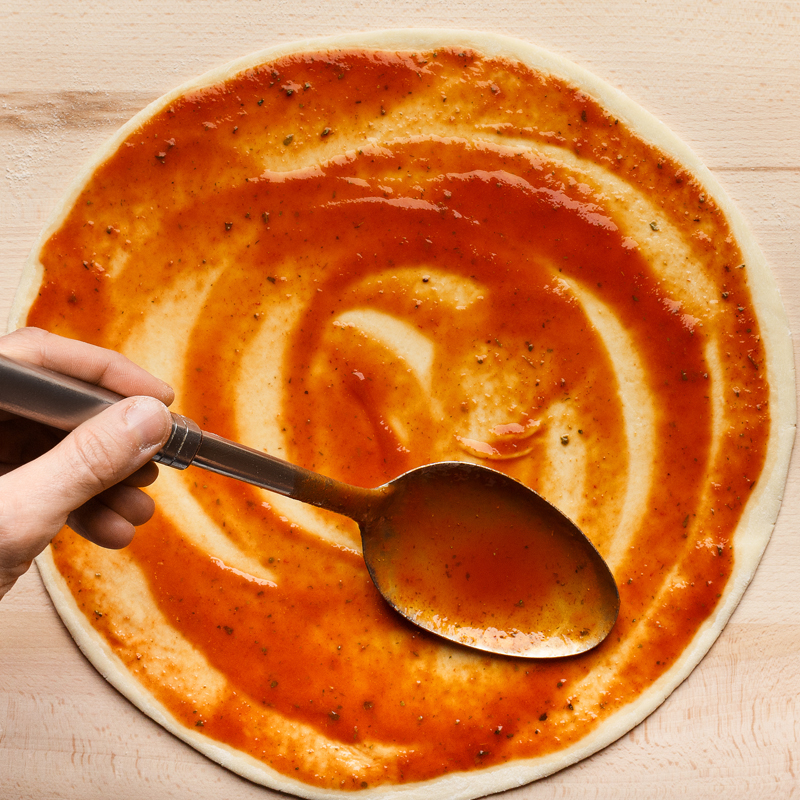
100 gr |
-- |
|
|---|---|---|
| Carbohydrate (gr) | 15.04 |
4928.47 |
| Protein (gr) | 3.59 |
1176.23 |
| Fat (gr) | 12.46 |
4083.43 |
| Fiber (gr) | 1.36 |
445.97 |
| Cholesterol (mg) | 14.64 |
4795.8 |
| Sodium (mg) | 325.27 |
106557.75 |
| Potassium (mg) | 392.16 |
128471.4 |
| Calcium (mg) | 78.15 |
25603.27 |
| Vitamin A (mg) | 46.04 |
15084.01 |
| Vitamin C (mg) | 6.16 |
2019.31 |
| Iron | 0.62 |
203.1 |
Pizza sauce is an essential component of a great pizza, blending vibrant flavors of tomatoes, creamy cheese, and a mix of aromatic spices. Beyond its delicious taste, pizza sauce also offers nutritional benefits, making it a healthier choice compared to many other condiments and sauces.
The calories in pizza sauce are 77.5 calories per 100 grams.
Tomatoes form the heart of pizza sauce. They are a rich source of lycopene, a powerful antioxidant that promotes heart health and reduces the risk of certain cancers. Tomatoes are also packed with vitamins A and C, supporting immune function and skin health.
Cheese adds creaminess and enhances the sauce’s texture. It also provides essential nutrients like calcium for strong bones and protein for muscle repair. Choosing low-fat cheese can further reduce the calorie content of the sauce.
Common spices in pizza sauce include oregano, basil, garlic, and black pepper. These herbs and spices not only add depth to the flavor but also offer antimicrobial and anti-inflammatory properties. For instance, oregano is known for its antioxidant content, while garlic supports cardiovascular health.
Unlike many commercially available sauces, pizza sauce often contains minimal or no added sugars, relying on the natural sweetness of tomatoes for flavor.
Thanks to its tomato base and herb content, pizza sauce is loaded with antioxidants that fight free radicals and support overall health.
When made with fresh ingredients and low-fat cheese, pizza sauce is generally lower in calories and fats compared to creamy or oil-based sauces.
While it’s most commonly associated with pizza, this versatile sauce can be used in various dishes: